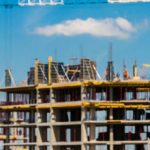Recent Blog Posts

Negotiating a Construction Contract as a General Contractor
Negotiating any type of complex business transaction is a skill. Construction contract negotiations require much foresight and anticipation of possible delays and other difficulties. Each party is theoretically on the same side, however, there is a tug and pull. The owner will want little to no delays and the general contractor wants to agree… Read More »

LIVING IN A FLORIDA GOLF COURSE COMMUNITY DREAMS CAN BECOME NIGHTMARES
Everyone has seen the advertisements for living in a Florida golf course community, whether reading your local newspaper, or simply driving around Florida. The sales pitch usually follows something along the lines of, you deserve it, Florida resort lifestyle, and will show a beautifully manicured course with the background of unspoiled Florida wetlands. The… Read More »

Licensing Matters in Construction Law
The technicality of the construction business requires that contractors are lawfully licensed and duly approved to take on construction projects. State and local officials have the authority to audit contractors to ensure compliance. Florida, like other states in the country, requires general contractors to go through a process to obtain licensure. Without this license,… Read More »

LOST FUTURE PROFIT CLAIMS IN FLORIDA
When it comes to damages in Florida for breach of contract claims and other intentional torts, a very important and difficult type of consequential damages to prove concerns lost future profits claims. By example, assume that a business entered into a contractual agreement with a contractor to build-out commercial space. The contractor is very… Read More »

Legal Issues in Construction Procurement
Public construction continues to be a huge source of revenue for many general contractors in the construction industry. The processes that local and state governments use are governed by regulations. Therefore, as compared to private contracting, public projects tend to take a more orderly and procedural path. All the same, public construction can be… Read More »

Is Your Business ADA Compliant? 3 Ways to Avert Litigation
Owning a brick and mortar business comes with complying with a variety of state, local and federal laws. The Americans with Disability Act (ADA) often comes into play when dealing with employees who have a disability. However, business owners also have to ensure that their business is ADA compliant with ADA accessibility rules. Business… Read More »

Consequences of Not Obtaining a Construction Permit
Florida and all U.S. states operate on a system of notifying counties and cities about impending construction projects. Each state has its rules governing when a permit is required depending on the size and magnitude of the project. The permit informs the local or state government and acts as a monitoring tool. The process… Read More »

Ending the Pre-Trial Tug of War The Implications of Proposals for Settlement & Offers of Judgment in Florida
Proposals for settlement, otherwise referred to as an “offer of judgment” are popular litigation tools used to put stress on parties to settle lawsuits. This approach concerns Florida Rule of Civil Procedure 1.442 and Florida Statute 768.79, and includes assessing attorneys’ fees and costs for a prevailing party or party that offered to settle… Read More »

Legal Relief for Construction-Related Drainage Issues
Construction law applies to occurrences that take place even after the project has long terminated. In some instances, defects arise during the construction of a structure. The structure that is built as a result of the construction project is all subject to defects whereby responsibility can pass to the contractor. Defects can include water… Read More »

CIVIL THEFT IN FLORIDA – AN EFFECTIVE TOOL TO RETAIN POSSESSION OR SIGNIFICANTLY INCREASE YOUR DAMAGES CLAIM
Imagine for a moment that you inherit a beautiful custom-made motorcycle from a relative. You are thinking how great it is that you have inherited this vehicle and love to show it to family, friends, and neighbors. You are also thinking to yourself how cool it is that you don’t have to spend your… Read More »

